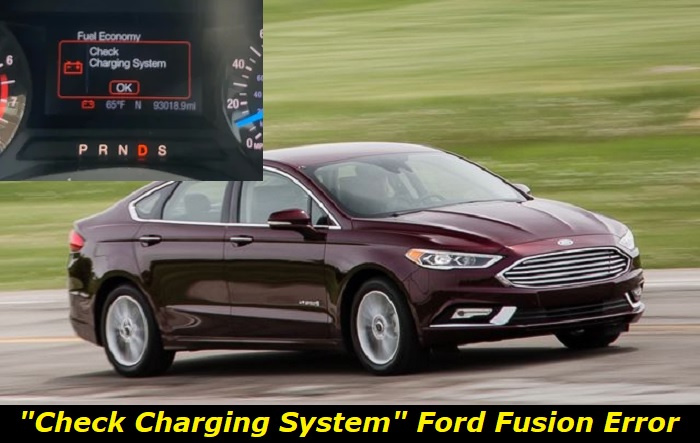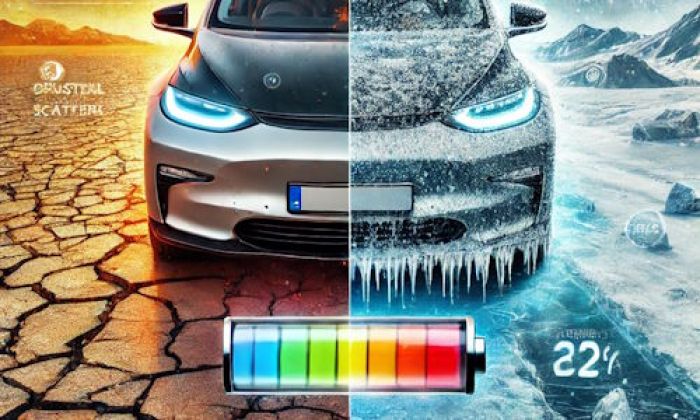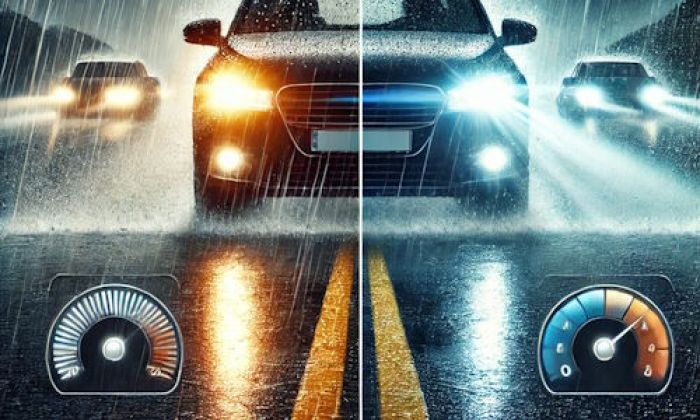Most Ford Fusion owners know that the car's charging system is rather fickle. Concerned drivers have posted numerous complaints on various online forums and discussion boards. Some drivers have complained about the warning popping up soon after their Ford Fusions passed the warranty mileage limit. While others experience it before reaching the limit, in both situations, once the warning light comes on, it will likely pester you until you get it attended to.
Check charging system message highlights
- Common reasons:alternator problems, dying battery, wiring issues, voltage regulator faulty
- How to fix:check the battery, check the alternator, confirm the wiring is OK
- Possible consequences:car may not start eventually
- Priority level:High
- Can you drive?Yes
- DIY repair:Possible
- Repair price range:$150-$800

What Does the Check Charging System Warning Mean?
Anytime you see your check charging system warning, your Ford Fusion desperately tries to tell you that it is running solely on the battery. Usually, when you turn on your Ford Fusion, the battery kickstarts the system and leaves your alternator and voltage regulator to carry on the largest parts of the chore.
The check charging system warning poses a danger because should your car run only on the battery, it will get drained relatively fast. You have a small window to fix the check charging system warning because your battery will go flat if you rely on battery power for too long. Since a defective charging system cannot recharge your battery, it will run down shortly after being too heavily relied upon.
A battery that has died of overwork can only be replaced with a suitable alternative. Like most mechanical problems, the sooner you get it fixed, the cheaper it will be. Ignoring your check charging system warning is ill-advised due to the likelihood of affecting other components, thus increasing your repair bill.
The Function of Your Charging System
Your Ford Fusion's charging system comprises the battery, alternator, electronic control unit, and wiring. The charging system ensures that the battery is properly charged so it may deliver the energy required by various components when running the engine. Beyond delivering sufficient electric current for optimal performance, the charging system also has a failsafe designed to protect the components that rely on it for power.
Common Causes of Check Charging System Warning
When your warning light comes on, any of these issues could be to blame:
- The defective alternator will fail to supply electric power to the components
- The defective battery may fail to charge
- A failing drive belt will prevent the alternator from doing its job
- Corroded terminals, wires, and connectors will affect the battery and alternator
- A malfunctioning electronic control unit may detect errors in the charging system even when components are functioning optimally.
Diagnosing Your Charging System Malfunction
Before popping the hood and getting your hands dirty, safety must be adhered to. While working on your car, it is best to remove any loose clothing items that may get caught in moving parts, e.g., ties or scarves, and remove any jewelry. Though your wedding ring may not get you shocked, chances are it can arc a short that heats your metallic components, causing them to burn your or your electronics.
Look Out for the Symptoms of a Defective Battery or Alternator
The aim of troubleshooting is to eliminate likely challenges until you zero in on the troublesome component. Drivers facing an annoying check charging system warning should begin with a visual inspection of the battery. You will keep an eye out for signs of corrosion and loose wiring.
- Inspecting the Alternator
First, look at your alternator and ensure it is not affected by loose wiring. After confirming the wiring is properly in place, inspect the area closely to ensure that there isn't any oil or water leaking onto your alternator. Some drivers have replaced alternators multiple times before discovering that the thermostat had been leaking on them and causing them to malfunction.
Ford Fusions with an alternator that isn't charging may give themselves away via the dashboard warning light. Alternatively, you can catch on that your alternator is not functioning optimally when your electronics start to have a mind of their own. You may notice your lights flickering or dimming, sluggishness or failure of the automatic transmission, the flickering of your radio screen, and the power steering wheel getting heavy. As your battery gets weaker, these symptoms will likely increase in frequency and severity.
Hands-on drivers are likely to have a multimeter somewhere in their tool kit. You can use the multimeter to measure the output voltage of your alternator. Turn your motor on and check whether the alternator delivers an output voltage between 13 and 14.5 volts. The output voltage should not veer below or beyond this limit even when you rev your motor.
If you have a multimeter with the motor on, carefully test the alternator's output voltage. This should be between 13 and 14.5 volts. It should stay in this tolerance even if the motor is revved. Should the multimeter reveal that your alternator is not charging, you should inspect the alternator fuse and fusible link. Where the fuses work fine but the alternator still isn't charging, chances are high that the rotor or brushes inside the elevator.
- Inspecting the Battery
Keep the motor running, and use the multimeter to gauge your battery terminals. If everything runs as it should, the multimeter will show a value of about 12.5V. The voltage drop should not be more than 0.2V. Where your voltage drop is beyond 0.2V, inspect the plastic coating for brittleness and the wiring for warmth that damaged wires may cause. Lose or corroded ground wires could also be the culprit.
Drivers who do not notice a fault with their battery's wiring should move on to inspect the battery closer. Ensures the terminals do not have any build-up and confirm that the connections are tight.
Inspecting the Battery and Alternator Without a Multimeter
If you cannot access a multimeter, there are other ways to get to the bottom of your check charging system error. We have already discussed how to check for corrosion and loose wiring above. Next, you must consider the situation that caused your check charging system warning to display. Drivers whose Ford Fusions lost power while driving most likely suffer from a defective alternator. A malfunctioning alternator is also likely to blame if your car loses power after jumpstarting it.
In both these situations, the textbook solution is to inspect the wiring and fuses, particularly those behind the alternator. A risky test to confirm the cause of the problem is starting your Ford Fusion and disconnecting the battery. The car should continue to run while posing a risk to your electronics when the alternator is overcharging or the rotors are damaged. The rotor damage or alternator overcharging could cause a spike that ruins your electrical components.
Have you noticed that your dash, head, and interior lights grow dimmer the faster you drive your car, and your alternator is defective? If you keep it up, overcharging is guaranteed to occur. Overcharging will ruin your battery wires and generate a foul smell in your passenger cabin. Should you notice this symptom, you are advised to go easy on the gas and drive slowly until you get to a safe location where you can pull over and park your Ford Fusion.
You can test the battery by turning your vehicle off and restarting it immediately after driving continuously for about half an hour. Where the battery starts up without a hitch, there is no need for concern. Should your Ford Fusion struggle to start, your wiring, terminals, or battery may be defective. Inspect these elements as described above.
Weird sounds from your serpentine belt or alternator may be caused by a slipping pulley belt or rotor bearing seizing. The sound will likely get worse when you rev your Ford Fusion engine. It is advisable to check the tensioner because it is the most likely culprit behind belt slippage.
After you jump start the car, does the vehicle drive for more than half an hour, even with electronics like radio and ac? That's a sign the alternator is operating. If not, you have a faulty alternator and need to have it tested.
Final words
While some Ford Fusion drivers have gotten accustomed to ignoring the nagging check charging system warning, do so at your own risk. Ignoring the warning will end with you stranded roadside. It will also rack up your repair bill by causing extensive damage to other components.
It is advisable to have your car inspected by a Ford dealership or certified auto repair expert as soon as you notice the check charging system warning. Even where the electronic control unit is to blame, and all your other components are running perfectly, it is still ideal to rely on professionals for advice and guidance.
About the authors
The CarAraC research team is composed of seasoned auto mechanics and automotive industry professionals, including individuals with advanced degrees and certifications in their field. Our team members boast prestigious credentials, reflecting their extensive knowledge and skills. These qualifications include: IMI: Institute of the Motor Industry, ASE-Certified Master Automobile Technicians; Coventry University, Graduate of MA in Automotive Journalism; Politecnico di Torino, Italy, MS Automotive Engineering; Ss. Cyril and Methodius University in Skopje, Mechanical University in Skopje; TOC Automotive College; DHA Suffa University, Department of Mechanical Engineering






Add comment